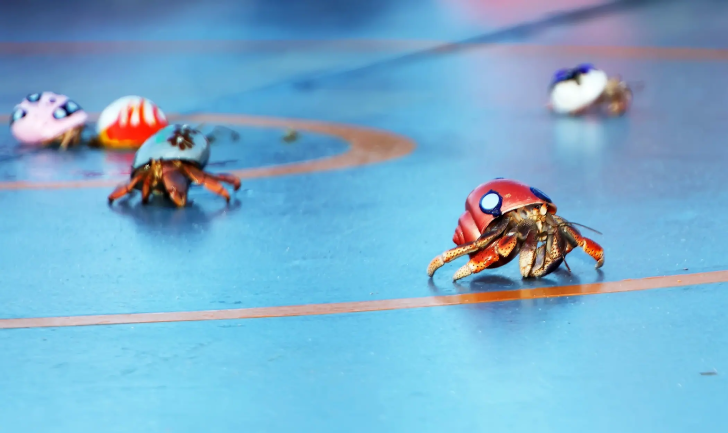Analog to Digital TV Day
Analog to Digital TV Day refers to the transition from analog to digital television broadcasting, which took place in different countries at different times. In the U.S., the official switch happened on June 12, 2009, when full-power TV stations stopped broadcasting analog signals and moved to digital transmission. This transition improved picture quality, allowed for more channels, and freed up radio frequencies for other uses like emergency communications and mobile networks. Some countries had their own specific dates for the transition, with the process continuing into the 2010s in some regions.

Champion Crab Races Day
Champion Crab Races Day is a quirky and fun celebration that typically involves racing crabs—often hermit crabs—in a competition of speed and strategy. While it’s not a widely recognized holiday, it has been observed in various places, especially at beachside events and festivals. Crab races usually work by placing crabs in the center of a circular track and seeing which one reaches the outer edge first. People often cheer on their chosen crabs, making it an entertaining and lighthearted event.

Cabbage Day
Cabbage Day is celebrated on February 17th and honors one of the world’s most versatile and nutritious vegetables. Cabbage has been a dietary staple for centuries, enjoyed in dishes like coleslaw, sauerkraut, kimchi, stuffed cabbage rolls, and soups. Rich in vitamins C and K, cabbage is known for its health benefits, including supporting digestion and boosting immunity. It’s also a key ingredient in many cultural cuisines, from Irish boiled dinners to Korean kimchi and German sauerkraut.

Tennis Pro Day
Tennis Pro Day—officially National Tennis Pro Day—is celebrated every year on February 17th. It honors the often‑unsung tennis professionals who coach, train, and mentor players at all levels, especially recreational athletes who rely on local pros for skills development, encouragement, and long‑term love of the game. The observance was created in 2020 by tennis enthusiast Maria Oddy as a way to show appreciation for the instructors in her community. The inaugural celebration took place on February 17th, 2021, and it has since grown into

Here are some notable historical events that took place on February 17th throughout history:
Historical Events:
1600 – Giordano Bruno Executed: Italian philosopher, mathematician, and astronomer Giordano Bruno was burned at the stake in Rome for heretical beliefs, including the idea of an infinite universe.
1801 – Thomas Jefferson Wins U.S. Presidency: After a highly contested election, Thomas Jefferson was elected as the 3rd President of the United States, defeating Aaron Burr in a tiebreaker vote in the House of Representatives.
1864 – First Successful Submarine Attack: The Confederate submarine H.L. Hunley became the first submarine to sink an enemy ship (USS Housatonic) during the American Civil War, though it also sank itself in the process.
1933 – First Issue of Newsweek Published: The popular news magazine Newsweek debuted in the United States.
1972 – Volkswagen Beetle Becomes the Best-Selling Car: The Volkswagen Beetle overtook the Ford Model T as the best-selling car in history.
2008 – Kosovo Declares Independence: Kosovo formally declared independence from Serbia, a move recognized by many countries but still disputed by others.
Notable Birthdays:
1754 – Nicolas Baudin: French explorer known for his mapping of Australia.
1904 – Hans Asperger: Austrian pediatrician who studied autism and later had Asperger’s Syndrome named after him.
1934 – Alan Bates: English actor known for Women in Love and Gosford Park.
1963 – Michael Jordan: Basketball legend and six-time NBA champion with the Chicago Bulls.
1981 – Paris Hilton: Socialite, media personality, and businesswoman.
1991 – Ed Sheeran: British singer-songwriter known for hits like Shape of You and Perfect.3
Notable Deaths:
1673 – Molière: French playwright and actor, known for works like Tartuffe and The Misanthrope.
1909 – Geronimo: Famous Apache leader and warrior who resisted U.S. and Mexican expansion.
1996 – Brownie McGhee: American blues musician and guitarist.
2013 – Mindy McCready: Country music singer.


